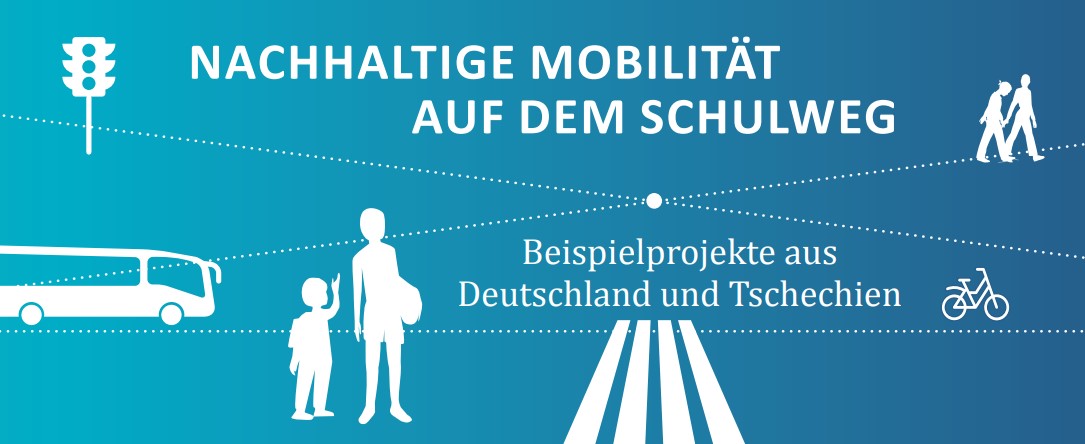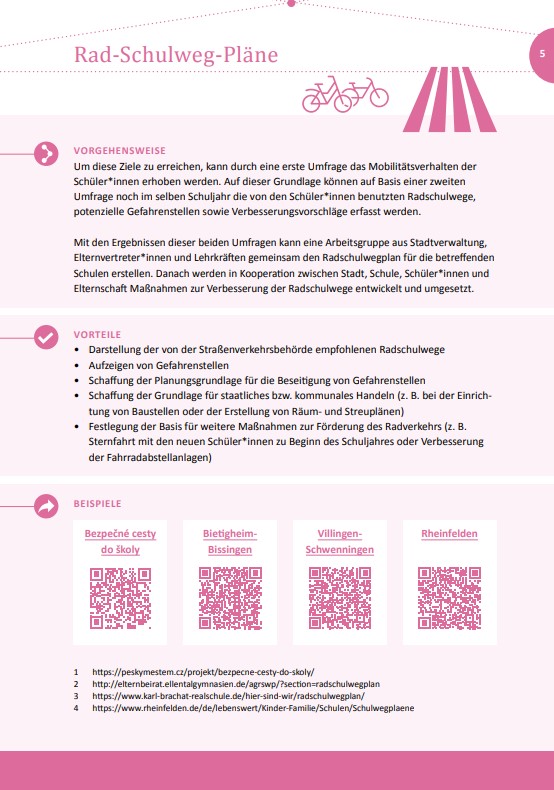Sustainable Mobility on the Way to School: Sample Projects from Germany and the Czech Republic

Almost all energy in the European transport sector comes from fossil fuels. In order to fight climate change, far-reaching changes in our mobility habits are required. Sustainable modes of transport are a concrete way to mitigate climate change. But adults are not the only ones who have to make these decisions. This new publication presents successful examples of how to get to school safely and sustainably.
While it used to be common to go to school by bike or on foot, it is common in many places nowadays for parents to drive their children to school every day. This creates even more traffic in front of schools, which leads to unsafe situations, noise, and emissions that are harmful to our health and the climate. The BEACON partner cities Pirna (Germany) and Písek (Czech Republic) addressed this problem in a handbook.
There are many ways in which children and young people can make their way to school independently, safely, and without the “mom/dad taxi”. In doing so, children gain a sense of responsibility and build self-confidence, while also becoming more aware of their environment and helping avoid emissions.
This handbook is intended to provide guidance for city administrations, schools, teachers, parents, and school children. It contains a collection of concrete project examples that are both simple and easy to replicate, divided into five categories: cycling, walking, public transport, urban planning and traffic education. Presented in a readable and concise format, this handbook should inspire and provide ideas on how children and young people can make their way to school in a safe and sustainable manner.

